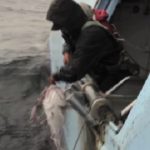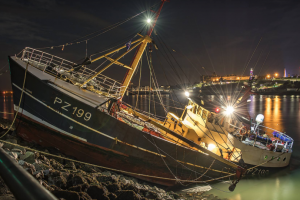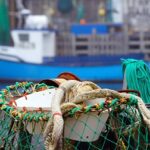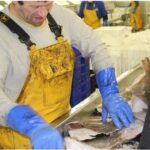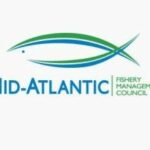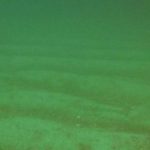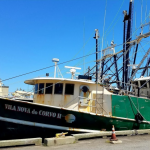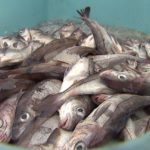Tag Archives: Secretary of Commerce Gina Raimondo
Governor Newsom requests federal fishery disaster relief to support albacore fishing industry
 Today, Governor Gavin Newsom announced a request for a federal fishery disaster declaration to support the albacore fishing industry. Last year marked the worst season for the West Coast North Pacific pole and troll albacore fishery in over 30 years. The California albacore fishery declined 71% in volume and 65% in value. Recognizing the importance of albacore to California’s commercial fisheries, Governor Newsom joined the governors of Washington and Oregon and submitted the request to U.S. Secretary of Commerce Gina Raimondo. If approved, the federal fishery disaster declaration would begin the process of providing needed relief to fishing communities financially impacted by the decline in albacore fishing. links, more, >>CLICK TO READ<< 18:36
Today, Governor Gavin Newsom announced a request for a federal fishery disaster declaration to support the albacore fishing industry. Last year marked the worst season for the West Coast North Pacific pole and troll albacore fishery in over 30 years. The California albacore fishery declined 71% in volume and 65% in value. Recognizing the importance of albacore to California’s commercial fisheries, Governor Newsom joined the governors of Washington and Oregon and submitted the request to U.S. Secretary of Commerce Gina Raimondo. If approved, the federal fishery disaster declaration would begin the process of providing needed relief to fishing communities financially impacted by the decline in albacore fishing. links, more, >>CLICK TO READ<< 18:36
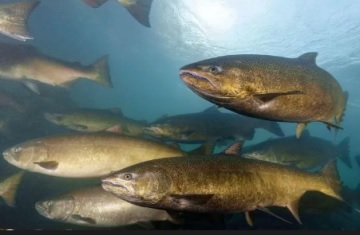
Oregon fishing disaster declared after failure impacting Chinook Salmon
Oregon Gov. Tina Kotek announced Friday that a fishing disaster has been declared following a three-year commercial fishery failure in the state. The declaration comes after U.S. Secretary of Commerce Gina Raimondo determined that a commercial fishery failure occurred in 2018, 2019 and 2020 because of a fishery resource disaster impacting Oregon Chinook Salmon Fisheries, the governor said. The determination comes after a request from former Gov. Kate Brown in October 2021. Fisheries with disaster determinations are eligible for funding from fishery disaster appropriations to help with community recovery, fishery restoration and prevention of future disasters. >>click to read<< 17:00
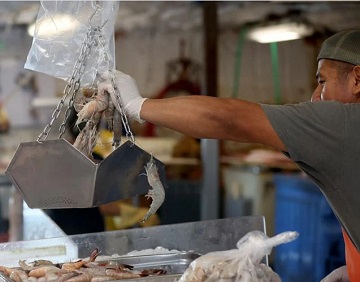
Lawmakers push for tighter rules on imported shrimp
A federal lawmaker representing Galveston County has co-sponsored a bill that would increase U.S. Food and Drug Administration testing to ensure imported shrimp meet domestic health and safety standards and fund a federal agency to buy some of the U.S. catch under some circumstances. The bill is meant to weed out tainted shrimp and level the field for U.S. shrimpers and seafood markets that must meet higher quality standards and have been battered by large foreign companies, including shrimp farming operations, able to sell their products in the United States for about half the domestic price. Customers leaving the seafood market agreed. Customer Fredell Rosen said domestic shrimp is the only way to go. “I want my shrimp from here,” Rosen said. “I want my shrimp local. I’m willing to pay more because I know it’s regulated and safe.” >click to read< 16:01
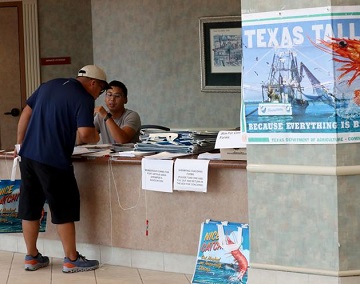
Texas shrimpers call for tariffs on cheaper Asian imports
Just days before the start of Gulf shrimp season, harvesters from all along the Texas coast are calling for government action to help them weather a storm of high fuel prices and cheaper foreign imports. More than 100 people who make a living on Gulf shrimp gathered Monday afternoon at the Doyle Convention Center to draw attention to forces they say threaten to sink their industry. Boat owners, dock owners, boat captains and deckhands huddled under a banner with six small U.S. flags to sign in and record their fears in hopes the notes would eventually reach the eyes of the U.S. Congress. Photos. >click to read< 11:41
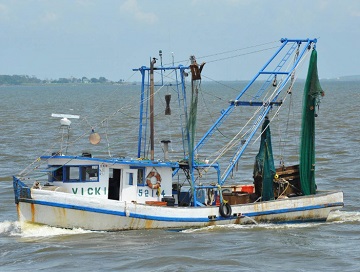
Texas Congressmen Call on Biden Administration to Protect American Shrimp Industry
With Texas shrimpers struggling to hold on to market share, a bipartisan group of the state’s congressional delegation is asking the Biden administration to do more to protect the industry from foreign providers accused of dumping cheap and less regulated shrimp into U.S. markets. On Tuesday, Reps. Troy Nehls (R-TX-22) and Randy Weber (R-TX-14) sent a letter to U.S. Secretary of Commerce Gina Raimondo and U.S. Trade Representative Katherine Tai requesting more information on the administration’s plans to protect shrimping. “Our nation’s shrimpers are being put out of business because of foreign shrimp being dumped into domestic markets,” said Nehls in a statement. >click to read< 13:20
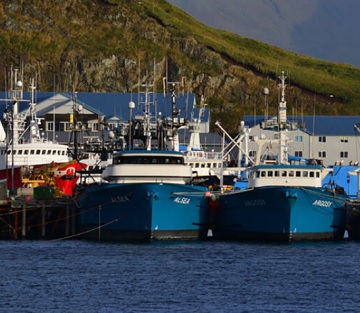
Alaska tribal groups sue federal fisheries managers, seeking action on salmon crisis
Two of Alaska’s largest tribal groups have sued the federal government, alleging federal regulators are mismanaging Alaska’s billion-dollar pollock and cod fishery amid an ongoing salmon crisis in central and southwestern Alaska. The Association of Village Council Presidents, which includes 56 tribes in the Yukon-Kuskokwim delta, and the Tanana Chiefs Conference, which includes 42 tribes in Interior Alaska, filed suit Friday in U.S. District Court against the National Marine Fisheries Service and Secretary of Commerce Gina Raimondo. The two tribal groups are asking a federal judge to require the agency to update the assessments used to set catch limits for federally managed groundfish fisheries in the Bering Sea and Aleutian Islands. >click to read< 14:57
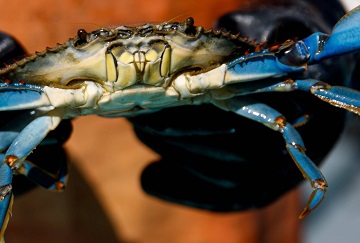
Maryland, Virginia race to save dwindling commercial fisheries in the Chesapeake Bay
Alarmed by plummeting stocks of commercial fisheries in the Chesapeake Bay, officials in Maryland and Virginia are scrambling to control invasive fish species that are causing at least part of the problem. On Thursday, Gov. Wes Moore asked the federal government to carry out an evaluation to determine if the situation amounts to a declaration of a “commercial fishery disaster,” which would qualify the state for federal assistance. In a letter to Secretary of Commerce Gina Raimondo, Moore said the state is increasingly concerned about the explosive growth of invasive fish species in the Chesapeake Bay, including blue catfish, flathead catfish and snakehead. >click to read< 09:11
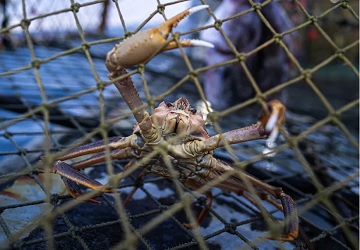
Decline of Bering Sea snow crab fishery demands swift action
Billions of crabs have vanished off the coast of Alaska, and with them, the fishing season for the Bering Sea crab fleet. This is grim news for a fleet that has fished crabs under science-based catch limits for years, providing healthy wild-caught seafood to the world and bringing jobs and income throughout Alaska and the Pacific Northwest. It’s also bad news for the communities of the Bering Sea, like St. Paul Island, where the economy is almost entirely dependent on the snow crab fishery. >click to read< 20:44
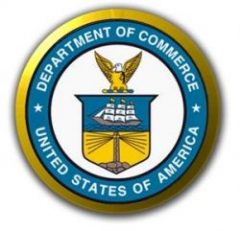
State of Alaska Federal Fishery Disaster Request
October 21/2022 – The Honorable Gina Raimondo, Secretary, United States Department of Commerce 1401 Constitution Avenue, NW Washington, D.C. 20230 Re: State of Alaska Federal Fishery Disaster Request Dear Secretary Raimondo: In accordance with Section 312(a) of the Magnuson-Stevens Fishery Conservation and Management Act (MSA) and Section 308(b) of the Interjurisdictional Fisheries Act (IFA), I am writing to request you declare a fishery disaster determination for the 2022/23 Bristol Bay red king crab and Bering Sea snow crab fisheries. I also request that you expedite a disaster
determination for the 2021/22 Bristol Bay red king crab fishery. >click to read<, Sincerely, Mike Dunleavy, Governor 21:18

Island’s fate tied to fishing, residents say: “I think we’re being pushed out”
Make way for windmills. That was one of the worries aired by Deer Isle-Stonington fishermen and small business owners who attended a breakfast economic development meeting at the Stonington town office Friday. A few residents and small business owners said they think the fishing industry is being pushed out to make room for windmills, thus further advancing green energy agendas that Governor Janet Mills and the federal government have adopted. Mike Shepard said he started fishing at age 10 in a “little outboard.” “I’m almost 70 now,” the lobsterman said. “I fished all my life out here. All that time I’ve been fishing. I’ve never seen a whale. It has nothing to do with the whale, it has to do with what they want to do with our waters out here. They want to go green and it’s killing the lobster industry, which is our way of life.” >click to read< 19:36
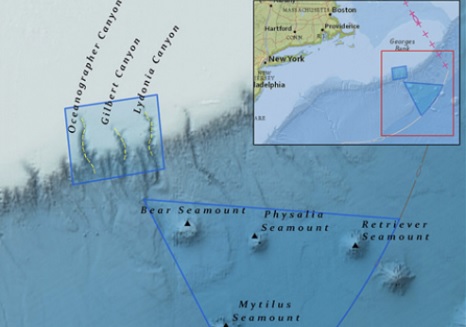
Two commercial fishermen sue federal government to block ban on fishing near Gulf of Maine
David T. Malley of Massachusetts and Patrick Fehily of New Jersey are commercial fisherman who work near the Gulf of Maine, within the roughly 5,000 square miles that President Biden designated in October as the Northeast Canyons and Seamounts Marine National Monument, according to court documents. Malley, a fisherman for more than 50 years, and Fehily, a fisherman for more than a decade, name Biden, Secretary of Commerce Gina Raimondo, and Secretary of Interior Deb Haaland as defendants in the suit, filed in US District Court in New Jersey, according to court documents. >click to read< 08:12

North Atlantic Right Whale: Extinction Is Looming. Everyone’s Fighting.
This May, new rules created for the lobster industry by the National Marine Fisheries Service will become official policy for boats operating in right whale territory. The agency estimates that lobster and Jonah crab traps are responsible for 95 percent of vertical end-line ropes in the areas where whale protections apply and therefore pose the most risk for entangling whales. The Fisheries Service says these changes will reduce the risk of death and serious injury by 69 percent. But in the months after the rules were finalized, the agency has seen pushback from conservation groups, who argue the new protections aren’t enough, and lobster fishing crews, who say the rules will harm their business. >click to read< 14:22
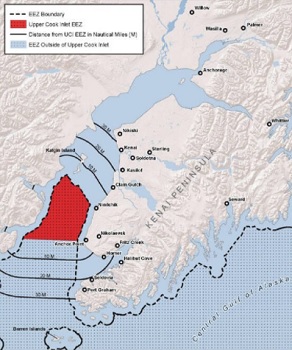
Kenai Peninsula Municipalities still working to oppose EEZ closure
Peninsula municipalities are still fighting back against the closure of federal waters in Cook Inlet to commercial salmon fishing. The city councils of both Kenai and Homer have agreed to file amicus briefs in a lawsuit brought forth by the United Cook Inlet Drift Association, which has a goal of reopening the waters before the 2022 summer fishing season. Groups across the peninsula, including the cities of Homer and Kenai as well as the Kenai Peninsula Borough, have consistently voiced their opposition to the closure of Cook Inlet’s federal waters to commercial salmon fishing. >click to read< 10:59

Delay Implementation of Gear Marking & Modification in Right Whale Rule
In a letter today to Secretary of Commerce Gina Raimondo, Governor Janet Mills urged swift action by NOAA Fisheries to reduce the unnecessary economic harm to Maine fishermen that the recently announced Federal whale protection rule will cause. “I don’t believe this rule, as written, should take effect at all, and, at the very least, I urge you to direct NOAA Fisheries to delay the rule’s implementation of gear marking and gear modifications (including both trawling up and insertion of weak points) to July 1, 2022,” wrote Governor Mills. “It is entirely unfair that Maine lobstermen continue to be the primary target of burdensome regulations, despite the many effective mitigation measures they have taken and despite the data showing that ship strikes and Canadian fishing gear continue to pose significant risk to right whales,” >click to read< 14:38

Silence from Shoreline Press on Undersea Electric Problems – We’re not talking what you can see, it’s what you can’t
All the exciting press about the installation of windfarms focuses on the seemingly blithe turbine blades swirling innocently in the free breeze,,, the mantra offered by Baker, Raimondo, Lamonte and Cuomo. The necessary undersea electric cables that connect the swan like turbines to the shore are viewed by the wind industry itself as their Achilles Heel. It has already shown its ugly face in the functioning of the five turbines off Block Island. This has placed an unexpected $80 million repair bill (just five turbines, mind you, and less that 18 miles of cable) on the rate payers. Orsted, which has  bought the Rhode Island wind company, has publicly said “we do not discuss our financial matters.” The repair will take two years, and a large swath of ocean is closed to commercial fishing—blues, sword, squid, lobster, clams, flounder, haddock. No fishing! Trawl gear hauled along the bottom will catch on that now exposed cable and strum it like a banjo string. Twang! Snap!! >click to read< 16:54
bought the Rhode Island wind company, has publicly said “we do not discuss our financial matters.” The repair will take two years, and a large swath of ocean is closed to commercial fishing—blues, sword, squid, lobster, clams, flounder, haddock. No fishing! Trawl gear hauled along the bottom will catch on that now exposed cable and strum it like a banjo string. Twang! Snap!! >click to read< 16:54
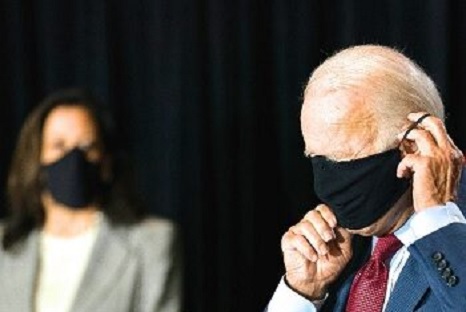
Biden-Harris Administration Approves First Major Offshore Wind Project in U.S. Waters
Today’s Record of Decision (ROD) grants Vineyard Wind final federal approval to install 84 or fewer turbines off Massachusetts as part of an 800-megawatt offshore wind energy facility. The project is expected to create 3,600 area jobs and will power up to 400,000 homes. Turbines will be installed in an east-west orientation, and all the turbines will have a minimum spacing of 1 nautical mile between them in the north-south and east-west directions, consistent with the U.S. Coast Guard recommendations in the Final Massachusetts and Rhode Island Port Access Route Study. >click to read< 15:05

































